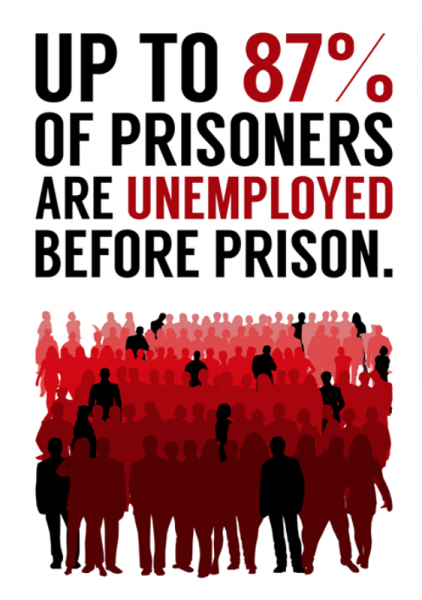
I am heartened by the way Labour and the Greens are talking up justice reform and the need to reduce prison numbers. Justice Minister Andrew Little told TV3’s Nation last week that everything is on the table, including reform of the bail, parole and sentencing legislation.
But it is frustrating that the government has agreed to significantly expand the Waikeria prison facility by 600 beds (due for completion in 2022) when it could use various short-term measures to stabilise or reduce the prison population.
There is clearly something wrong with the application of the present bail laws when, according to Andrew Little, 41% of remand prisoners are either not subsequently given a prison sentence, or are acquitted altogether. This doesn’t square with Section 13 (4) of the Bail Act which says that “if the defendant is unlikely to receive a sentence of imprisonment, this must count against the defendant being remanded in custody.” If that Section of the Act was applied properly we would have a lot less than the current 3000 remand prisoners.
Another way prison numbers could be quickly reduced is by allowing low-risk prisoners earlier eligibility for parole. Under the Section 25 (3) of the Parole Act “The Minister of Justice may designate a class of offenders who have not yet reached their parole eligibility dates for early consideration by the Board of parole.” It seems to me that this gives Justice Minister Andrew Little considerable room to move. Prison reformer Roger Brooking explains that inmates serving terms of 2 years or less are automatically released half way through their sentence. Brooking says that if that parole category became inmates serving 3 years or less, then an additional 765 inmates (on 2015 figures) would be eligible for half-sentence release. Brooking also details how parole guidelines for longer-term prisoners could be eased to reduce the prison population.
Many inmates are denied parole purely because Corrections hasn’t yet provided them with the rehabilitation courses the Parole Board requires them to do. That is Correction’s fault, not the prisoners. Rather than keep such prisoners in jail, they could be considered for parole, with one of the parole conditions that they do prescribed courses in the community.
Another administrative move to reduce prison numbers, common in America and Europe, is to regulate for more electronic bail and parole.
Together, such short-term measures would stabilise or reduce prison numbers, making the expansion of Waikeria unnecessary, and reducing double-bunking.
If the money budgeted for the enlarged Waikeria was spent on rehabilitation programmes for prisoners, and the provision of housing and jobs when they get out, that would also reduce prison numbers by making a dent in the re-offending rate – currently at 60% within two years of release (according to Andrew Little). While the government has budgeted $57 million (over four years) for ex-prisoner housing and support services it is a drop in the bucket compared to the $750 million earmarked to build the Waikeria facility.
The short-term emergency measures I have described above would give the government breathing space to proceed with its programme of legislative reform, including removing the restrictive conditions on bail imposed by Bail Amendment Act 2013 and improving eligibility for parole.
Of course, legislative measures to reduce prison numbers may take a while to have an impact on the prison muster. Making the biggest long-term impact will be legislation to substantially reduce prison sentences. We need to wind back the clock 20 or 30 years, before National and Labour got into a bidding war to show who could be the toughest on crime. Unfortunately, both Labour and National governments added years of prison time for many offences.
The new government seems now to be taking a different course, recognising that we have moved too far down the punitive road, and acknowledging that we should now be taking a more compassionate and rehabilitative approach.






Some facts for your interest:
Approx 50% of inmates are functionally illiterate (so much for our much vaunted education system!). This would tally nicely with your 87% unemployed – they are in fact unemployable.
On average they have 44 prior convictions, excluding a sealed youth offending record (so best of luck with rehabilitation)
98% are incarcerated for violent offences (no, you don’t get locked up for smoking dope)
The increase in prison population in recent years consists almost exclusively of gang members.
Andrew 300 people were locked up for not having a drivers licence. This dumb! I don’t know where your stats come from, please advise so I can check them out.
To suggest you are unemployed because you cannot read is a nonsense – let’s get our rivers and banks clean in christchurch, lets have ‘working’ gangs make people useful.
I agree Michal!
There is plenty of work that the unemployed could tackle. In my view fit & able people receiving benefits should be required to make some kind of contribution. Garbage collection, weed pest removal, rats & possum baiting, gardening to name a few
The ‘work for the dole’ scheme previously initiated under National gave a lot of men real commercial skills and enabled them to get full time employment. I even know a few who started their own businesses as tradies after the scheme was stopped by the Clark government.
Andrew I have just looked at the March 2018 stats and they do not tally with what you are saying 98% for violence nonsense!
38.6% are in for violence much the same as in 2014!
29% are minimum security – much the same as in 2014!
Only 16% are high security – 18% in 2014!
3000 people are on remand they have not yet been convicted.
I am aware of the high percentage in prison with drug and mental health issues – this is where we need some real effort to change things.
Jobs, jobs, jobs and decent ones at that, that will make a real difference, give people pride and belief in who they are and that they can provide for their families.
Despite its reputation for social justice and equality, New Zealand has one of the highest rates of imprisonment in the western world.
Find some other stats but make them reliable next time.
yes agree with you Keith much can be done to prevent a spend up on anymore Prisons.
I thought there was only a 200 bed increase. They are removing some beds in the old wing aren’t they. Plus 100 for inmates with mental health issues. It’s a great idea to reduce prisoner numbers but that will take time. And in the meantime keeping people safe must still be top priority. Also what about the loss of beds in the next few years when other current prisons reach the end of their usable life. Some within 5 to 10 years away.
My impression is an oppressive regime, such as this one in NZ Inc is, that is based on ruthless practice of capitalism, and offers only BS ‘kind words’ of propaganda to the opposite, NEEDS prisoners and a punitive system.
That keeps people ‘in check’, keeps certain industries busy and employed, and it serves the purpose of upholding a pecking order in society.
The (Un) Sensible Sentencing Trust is working as a loyal contributor to the existing system, and while Little may offer hope for some, his chances of succeeding are as dim as getting rid of the three strikes law.
Not putting people in prison for cannabis would be a good start, but former Green MP Keith Locke fails to mention this. Ending the drug war entirely, and legalizing all recreational drugs, would be even better. No one needs the government to tell them what to do with their own body.
Comments are closed.